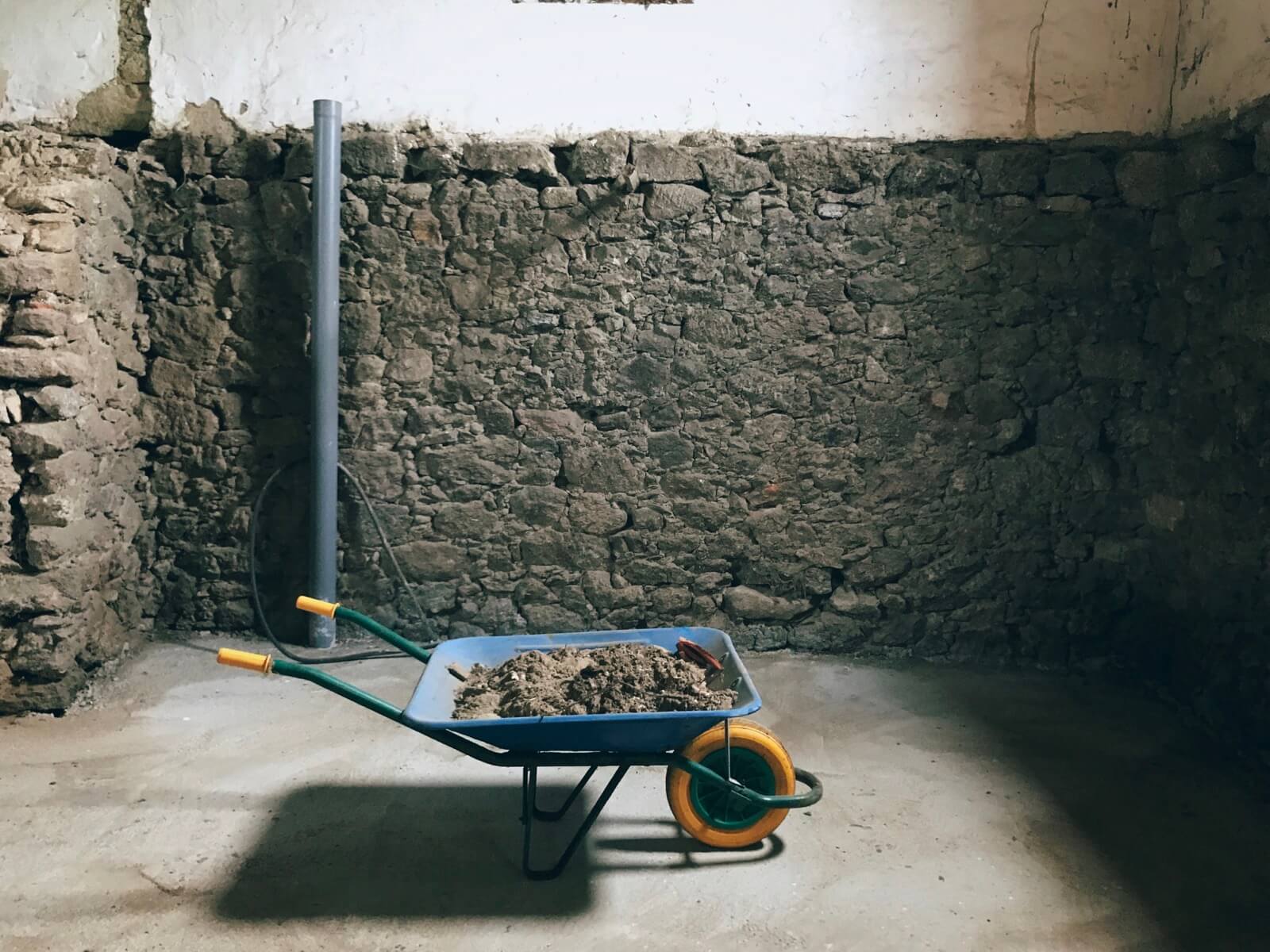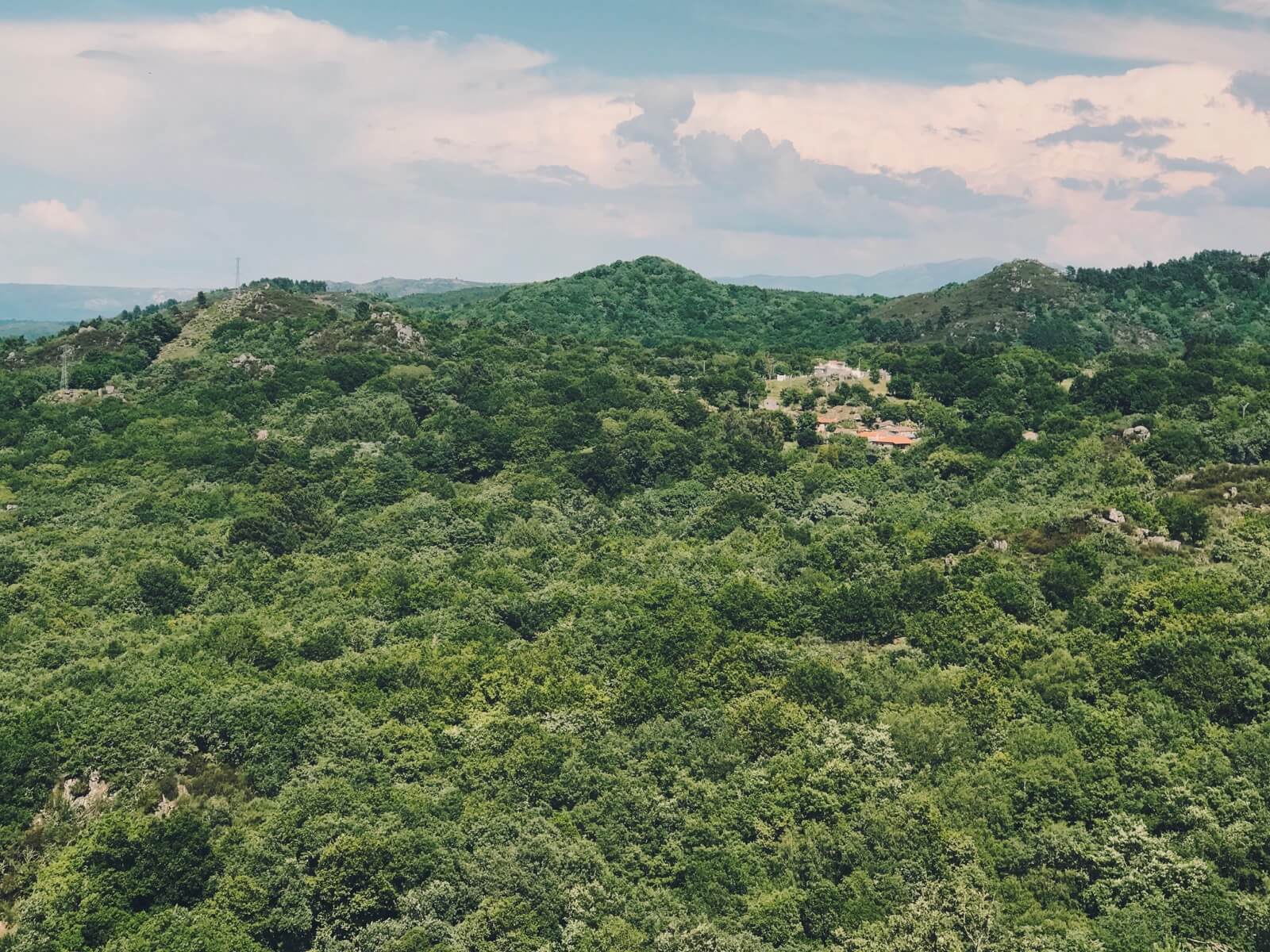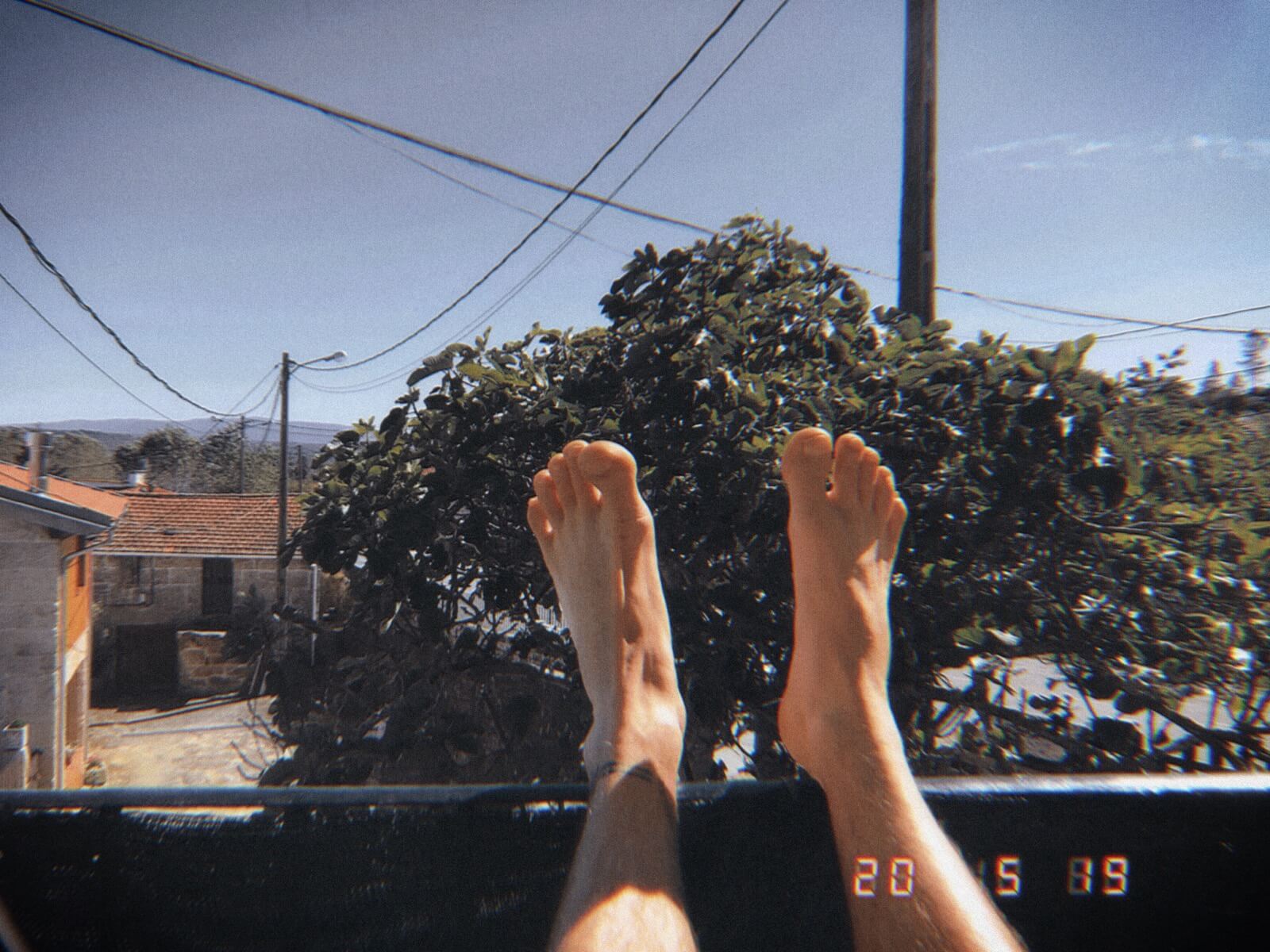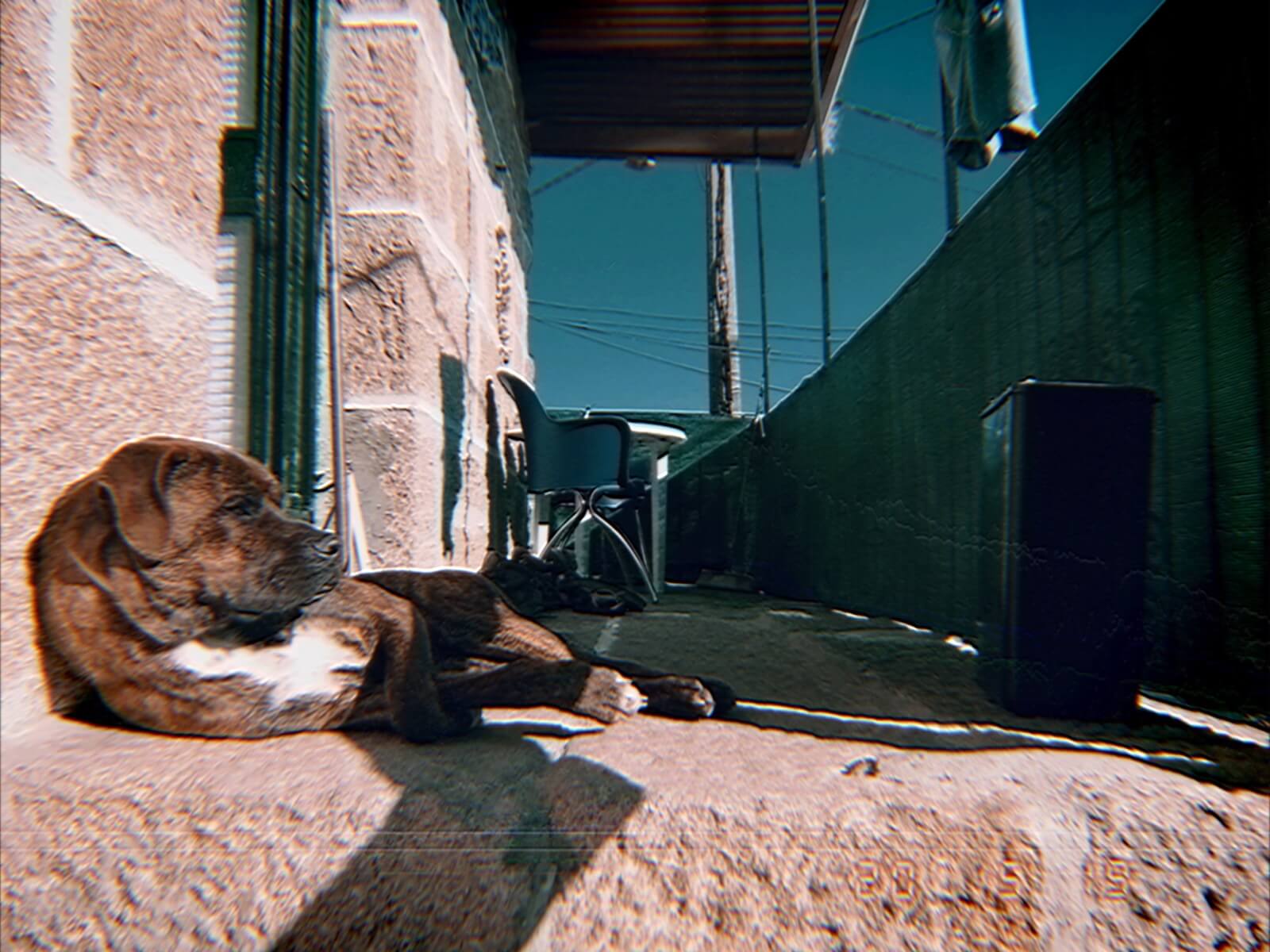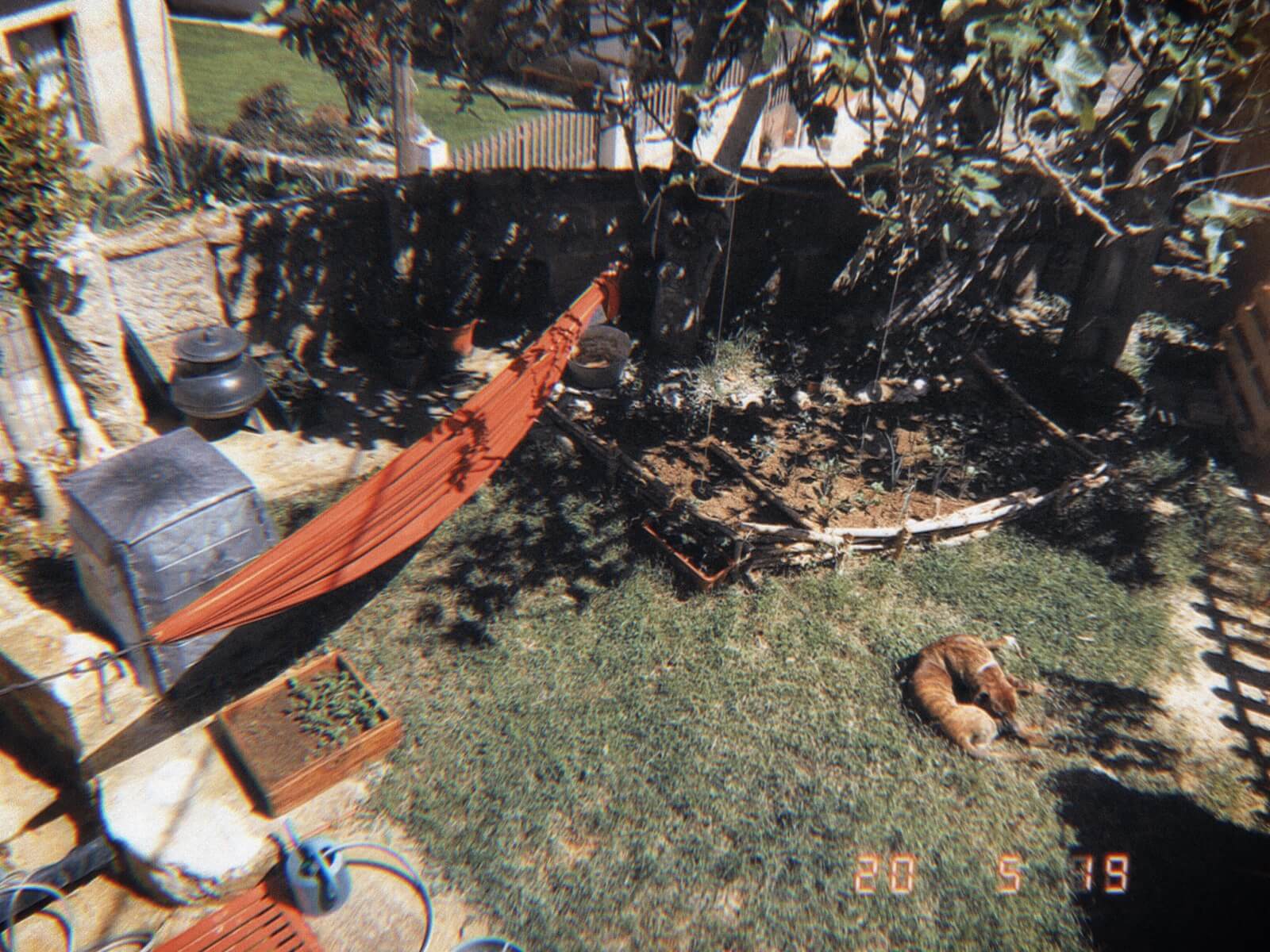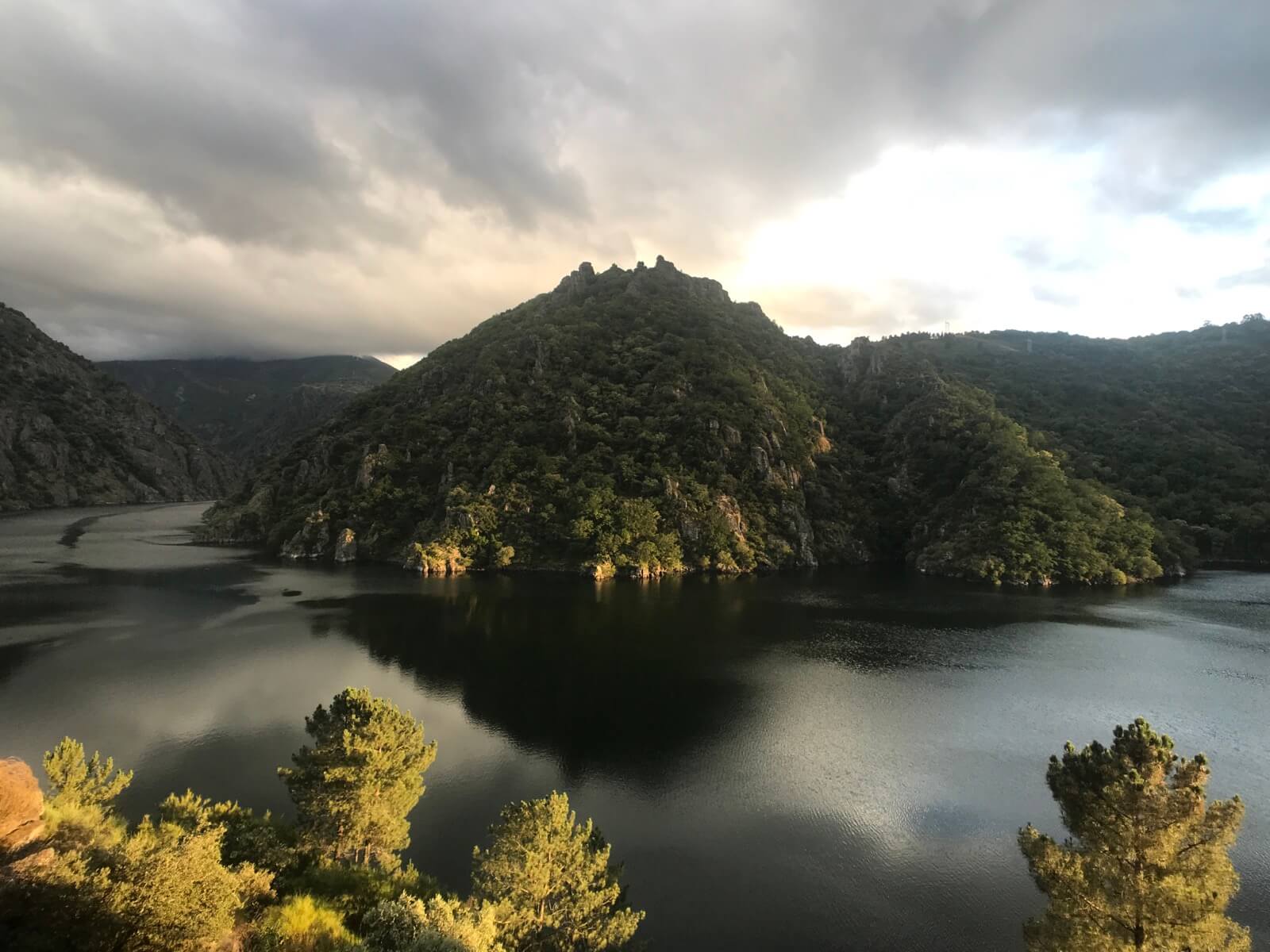
As the first trip out of our town since the quarantine, we started north to Ourense, then headed northeast to explore the towns just before Monforte de Lemos on the lucense side of the Ribeira Sacra. The weather was mostly dry but a little chilly, the end of an unusual cool streak.
We passed the small railroad town of Canaval (or Canabal in castellano), right off the highway near Ferreira de Pantón, quite a few times this week. Along with the train station and a cluster of old homes was an old brick industrial smokestack that reminded me of Cologne. For whatever reason, memories of driving through rural France on the way to Germany came to mind. The town felt forgotten, but in peaceful way. Perhaps its train service and proximity to Monforte de Lemos.
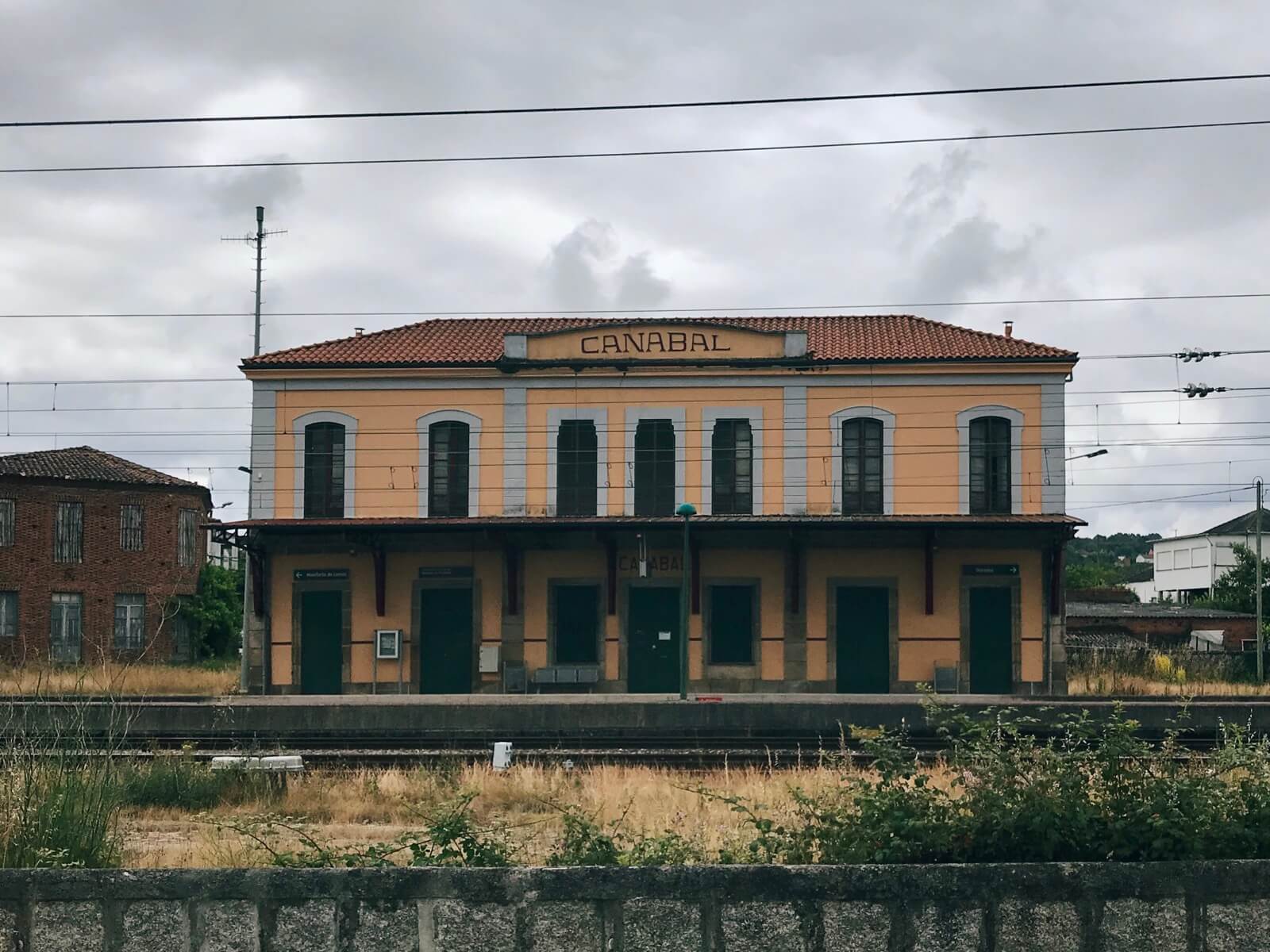
After Doade, a touristy town dedicated to the area’s signature viniculture, comes the Lookout of Souto Chao with its great views of Canón do Sil and its granite statue of a grape picker.
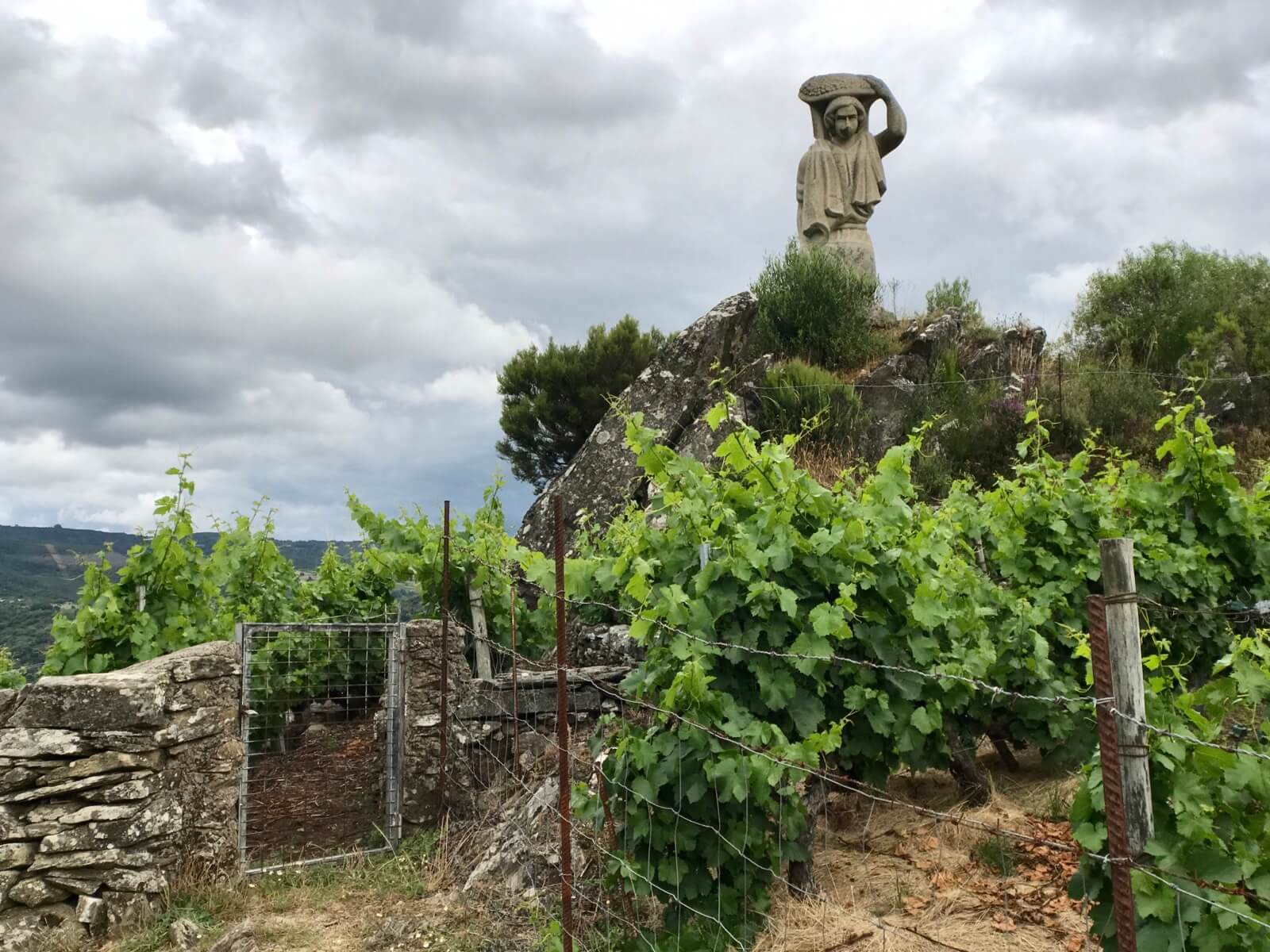
We bounced around between lugares and parroquias in Sober, Pantón, and O Saviñao looking at different houses from idealista, talking with neighbors, and getting a feel for the rural life in this corner of Galicia. On the way, we found a lake near Rosende. It turned out to be private property but we still managed to have a nice lunch and walk around without disturbing anyone, or them us.
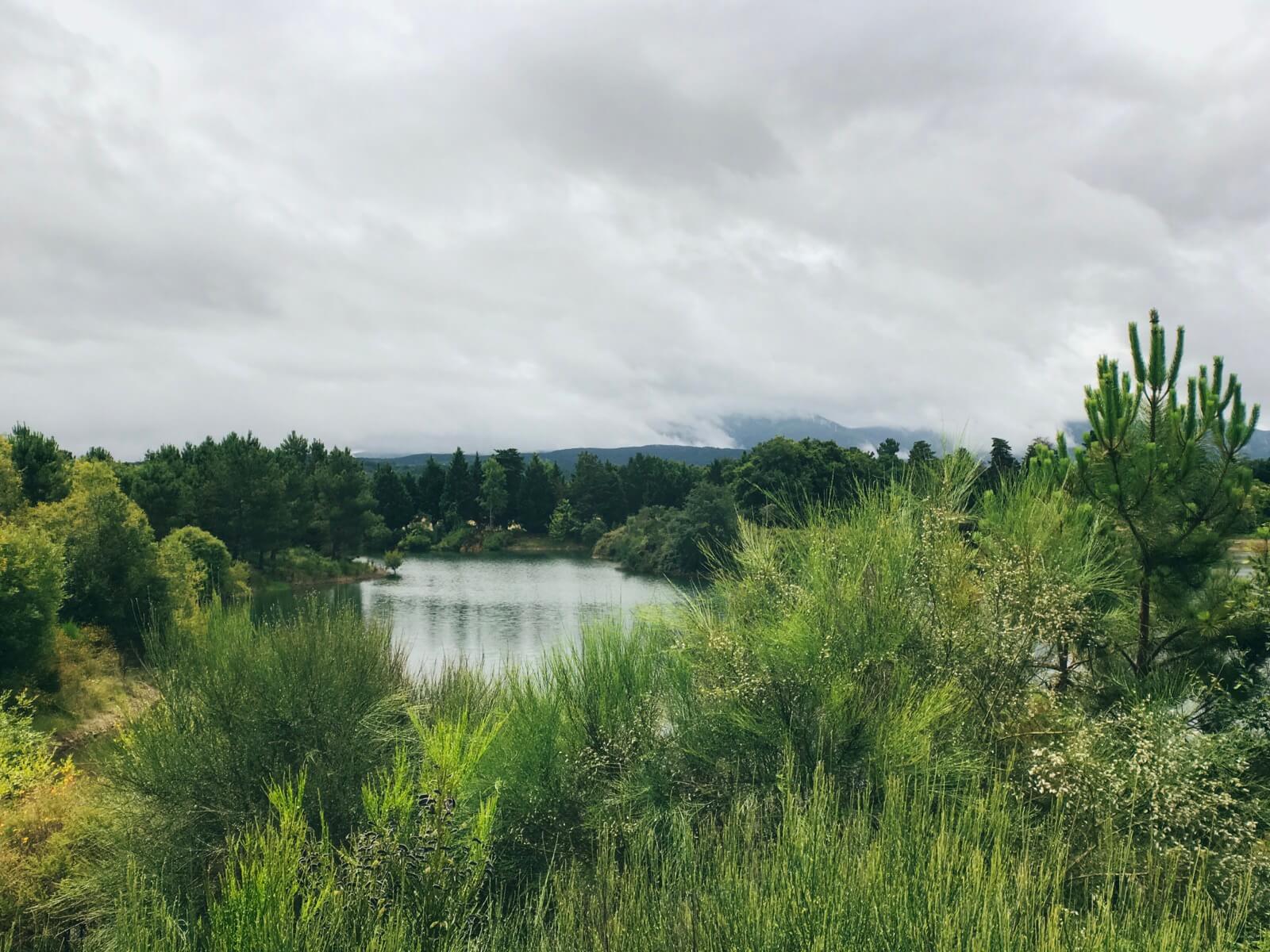
Alqo has been getting braver with going into the water and swimming a bit since we showed him the Arnoia river by our house. The last time he swam was in Long Beach and I think the waves scared him!
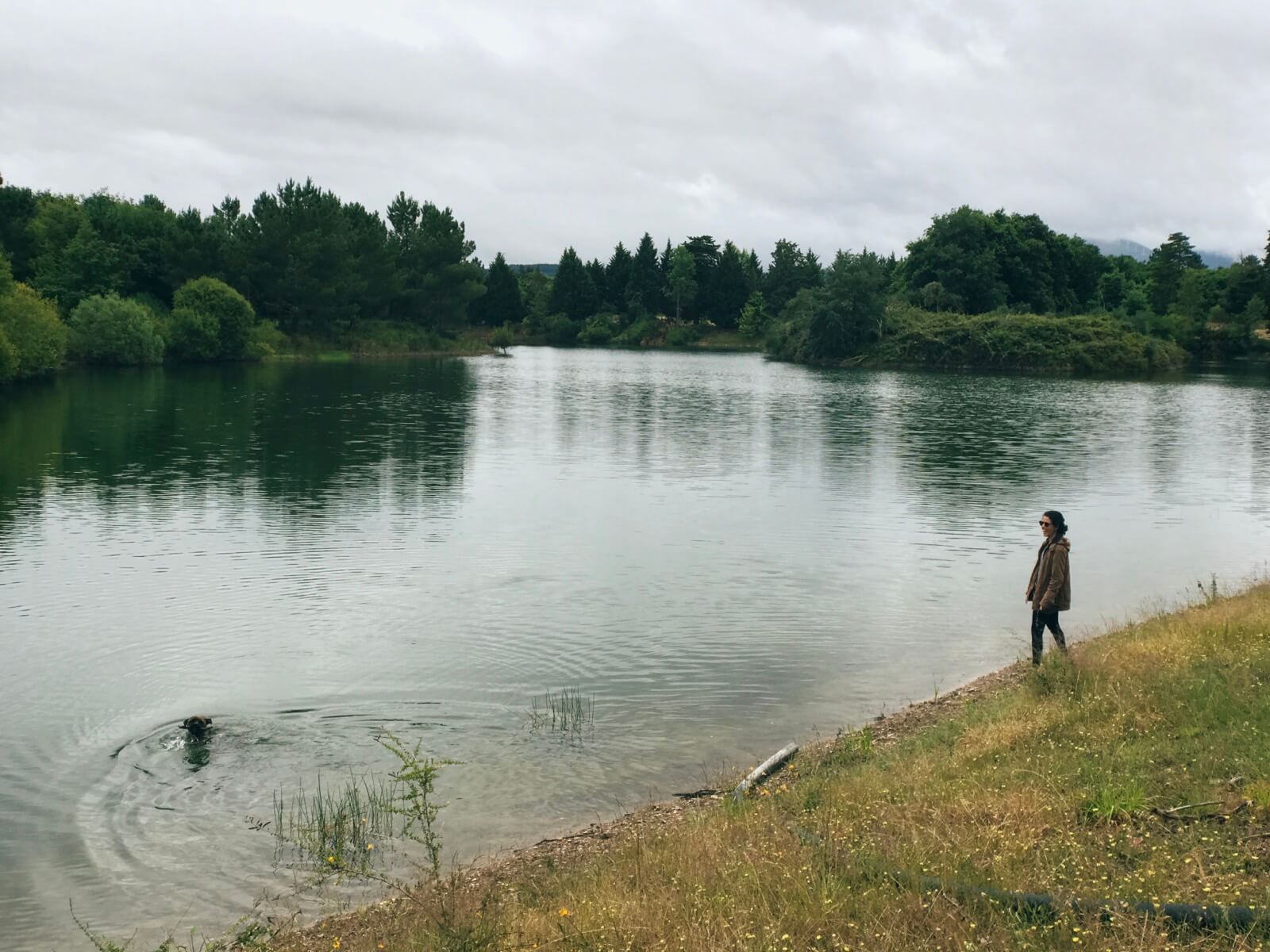
Van camping is fairly easy in Europe. While not exactly legal, if you’re off private land and and not conspicuous in you’re vehicle, you shouldn’t have a problem. When you camp off-season and in less-populated places, this becomes easier.
Alqo and I are almost always the first out of bed.
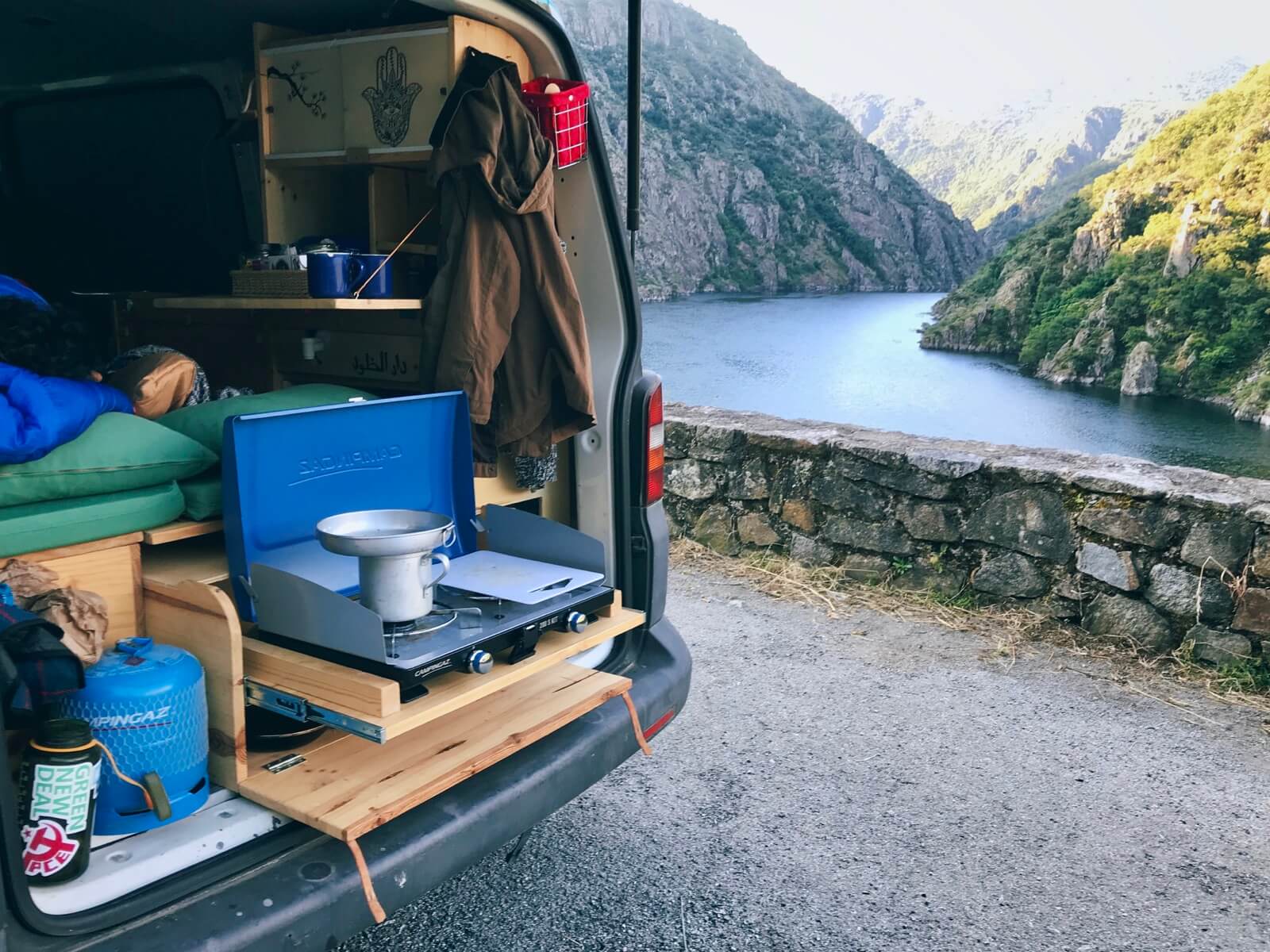
Many of the fincas we looked at have been long abandoned. Occasionally all that is left is the stone foundation, like this house that was built in the 19th century. Other times, we’ve seen houses with the bedspreads still on and knickknacks on the bookshelves. The older generation emigrated out of necessity. The Galician land inheritance system of minifundium prevented families from growing enough to sustain themselves, so they left; to Cuba, Argentina, to Catalonia or Basque Country. The younger generation inherited these places but either can’t or won’t live in the rural world for myriad reasons. No jobs, no option to telecommute, used to city life, etc.
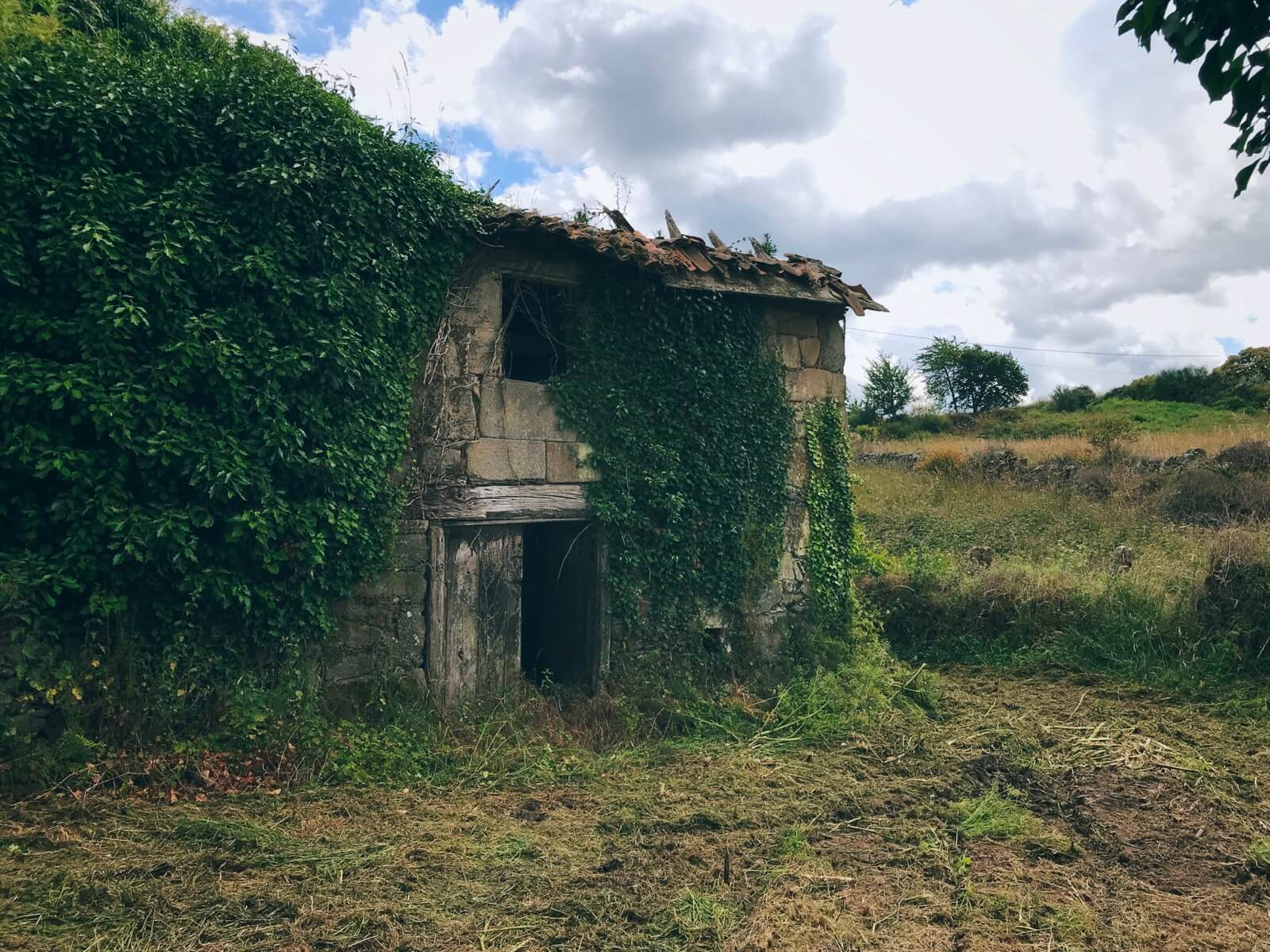
Perhaps there will come a de-urbanization phenomenon due to the pandemic and financial crisis that pulls young people away from the cramped city life back into España vacía, empty Spain.
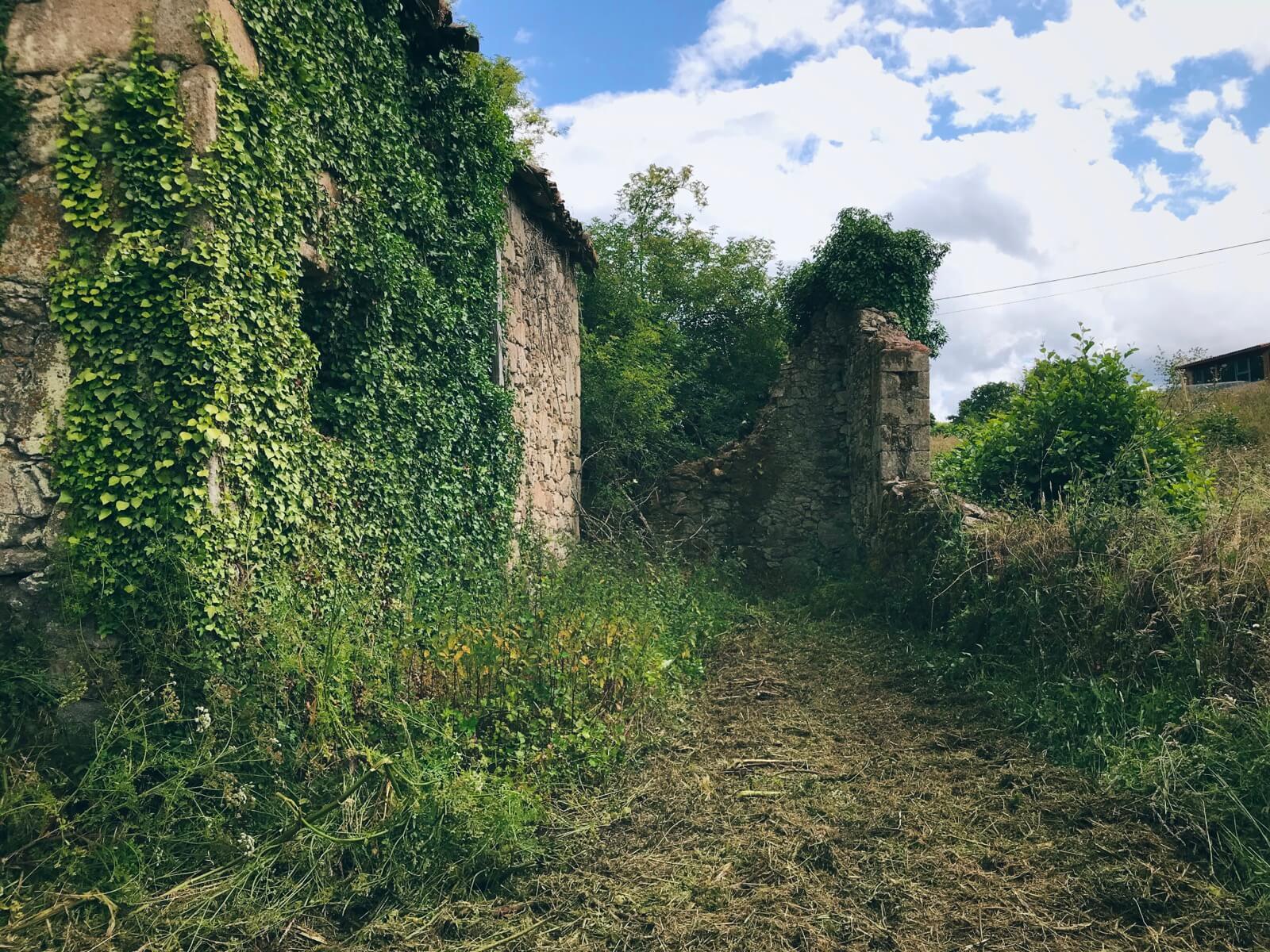
This mirador is actually on the Ourensan side of the canyon. Our last night we decided to cross over the river and camp near Paradela and Castro Caldelas. The mirador As Penas de Matacás offers a stunning view at sunset. I don’t think it’s possible to tire of looking at the canyon walls, the vineyards, and the villages nestled close to them.
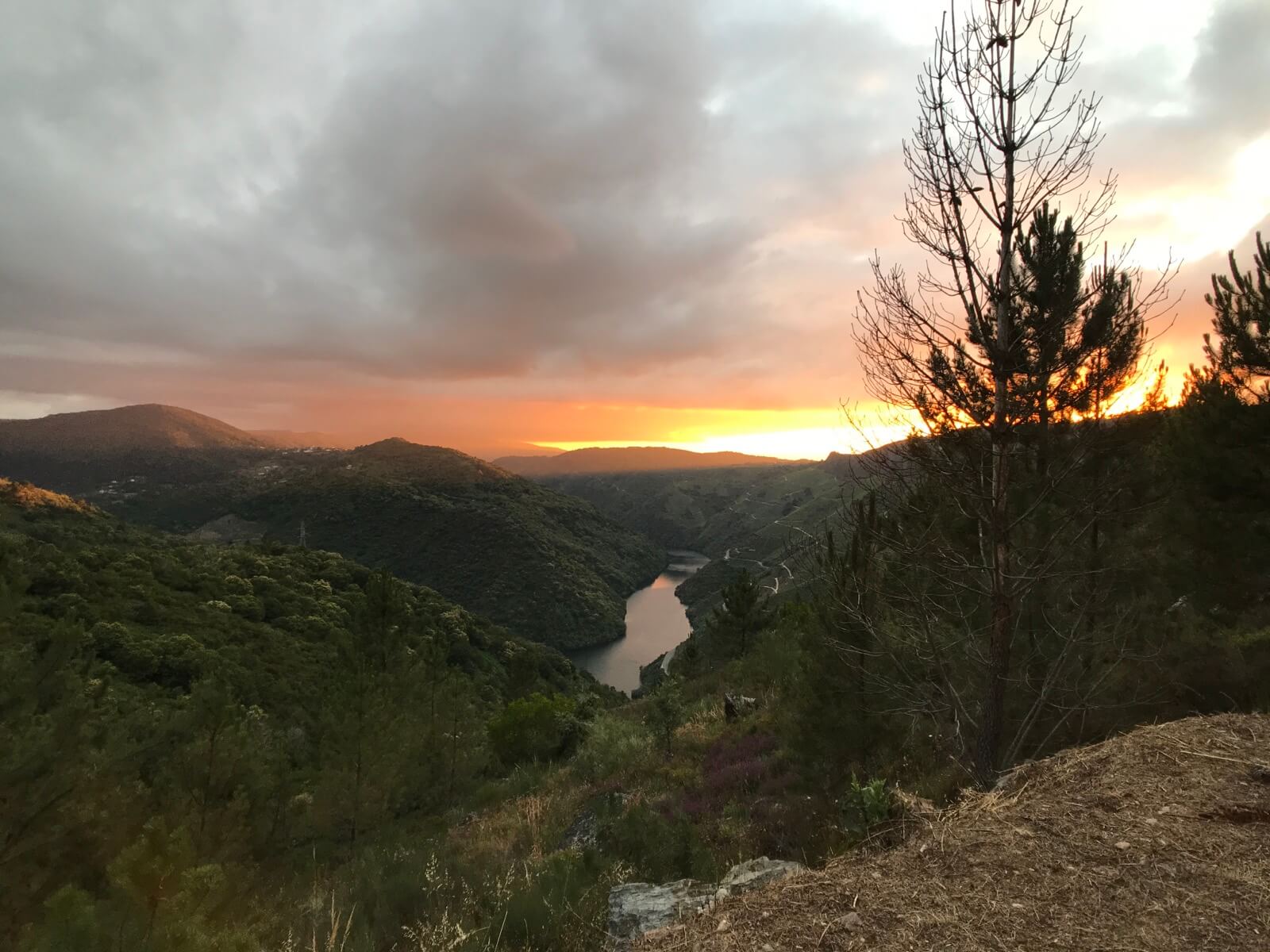
There’s been a lot going on in the world, and I need to disconnect a bit. So I brought Castelao’s Sempre en Galiza, translated by Craig Peterson, with me on the trip. It’s a very interesting book. The publisher Francis Boutle sums the book up quite nicely:
Forever in Galicia is the most extensive account of Galician identity ever written, an idiosyncratic text that spans and erodes the traditional genres of memoir, political treatise, historical essay and revisionist analysis.
I’ll share more after I’ve read more, but suffice it to say that it’s a compelling read for another interested in the history and cultural diversity of Iberia.
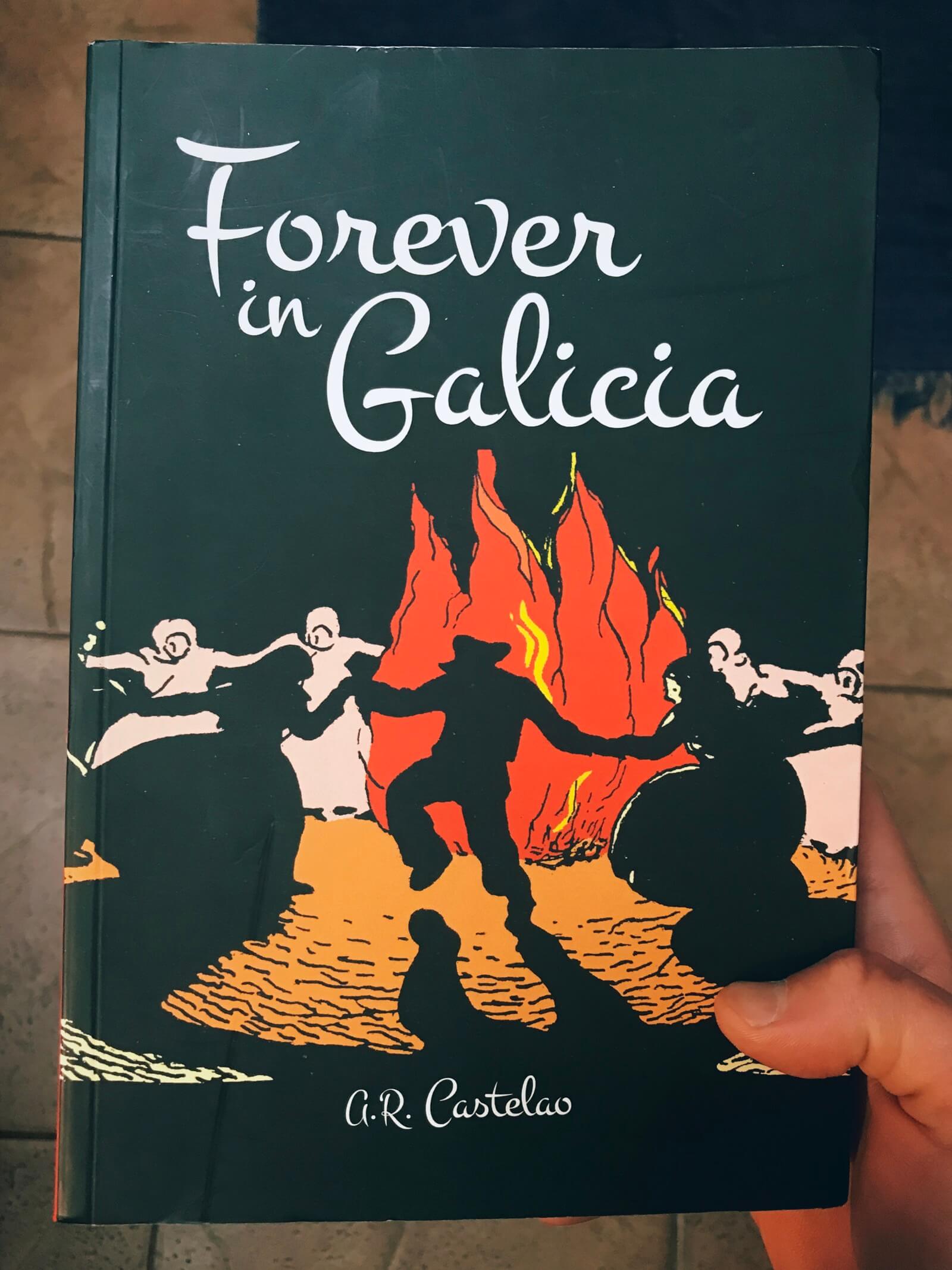
Lastly, on our route home, we saw a few reservoirs on the map. We stopped at the small beach near the town of Pradomao and found a great potential camping spot for the future.
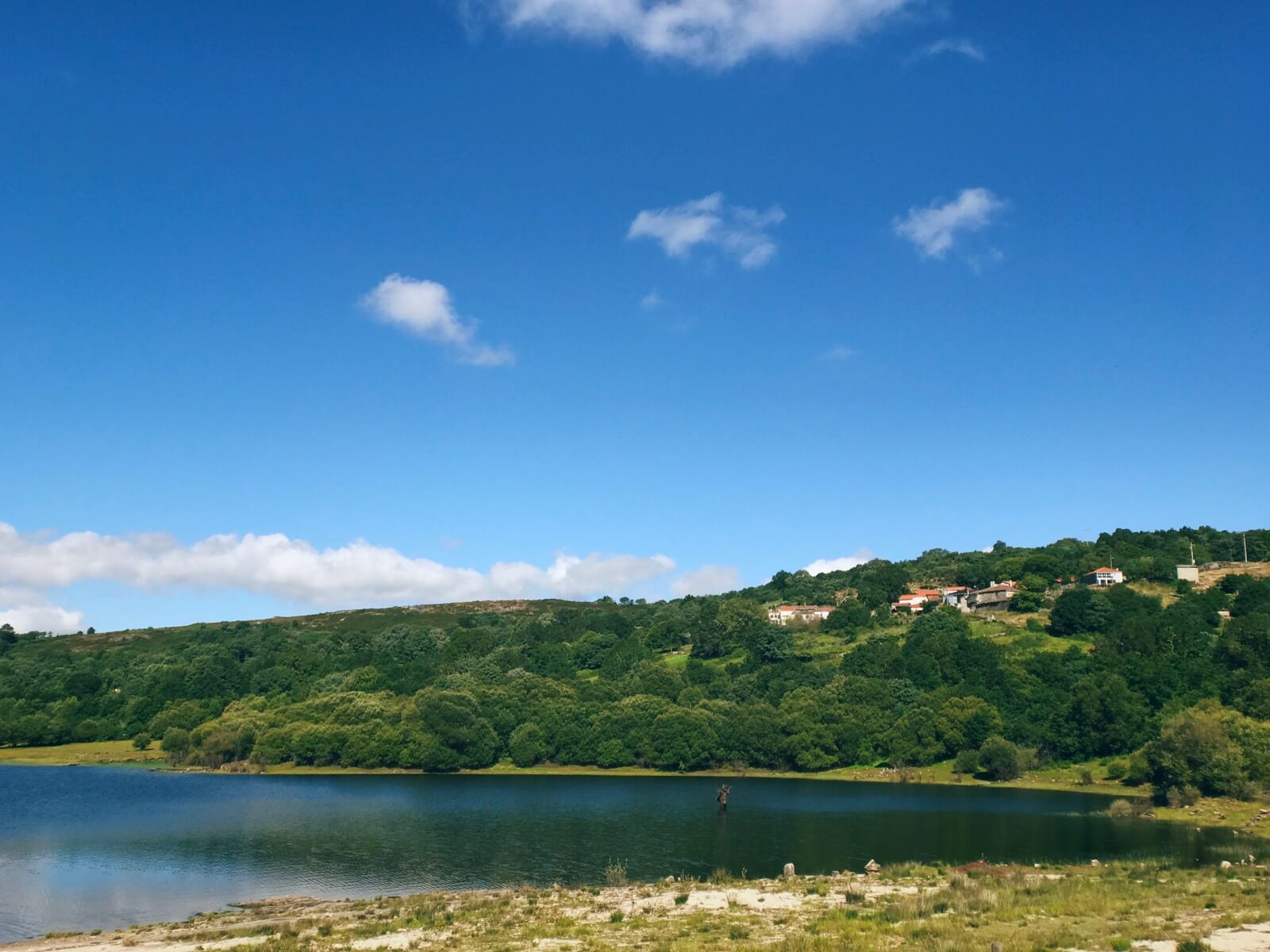
The trip was both refreshing and intimating. Refreshing as it removed us from the monotony of the quarantine life while still being safe and socially distant. But intimating as it made us confront new potentialities.
- How big of a rehabilitation and agriculture project can we both handle?
- How far is too far removed from nodes of denser society for economic and social futures?
- What will the area look like in ten, twenty, thirty years?
And so many more. Patricia said it didn’t feel like a vacation since her brain was in constant overdrive with possibilities. I agree.
Next week, we head back to the Rías Baixas area for a few days to visit family and plant a small garden.
